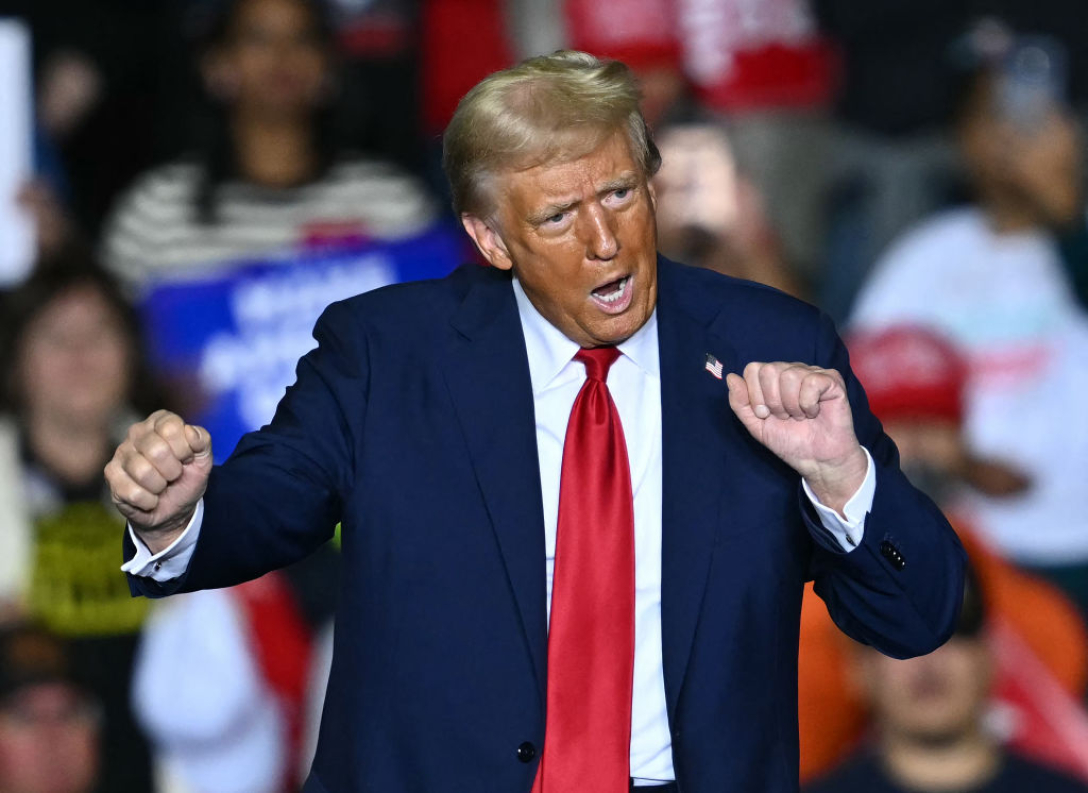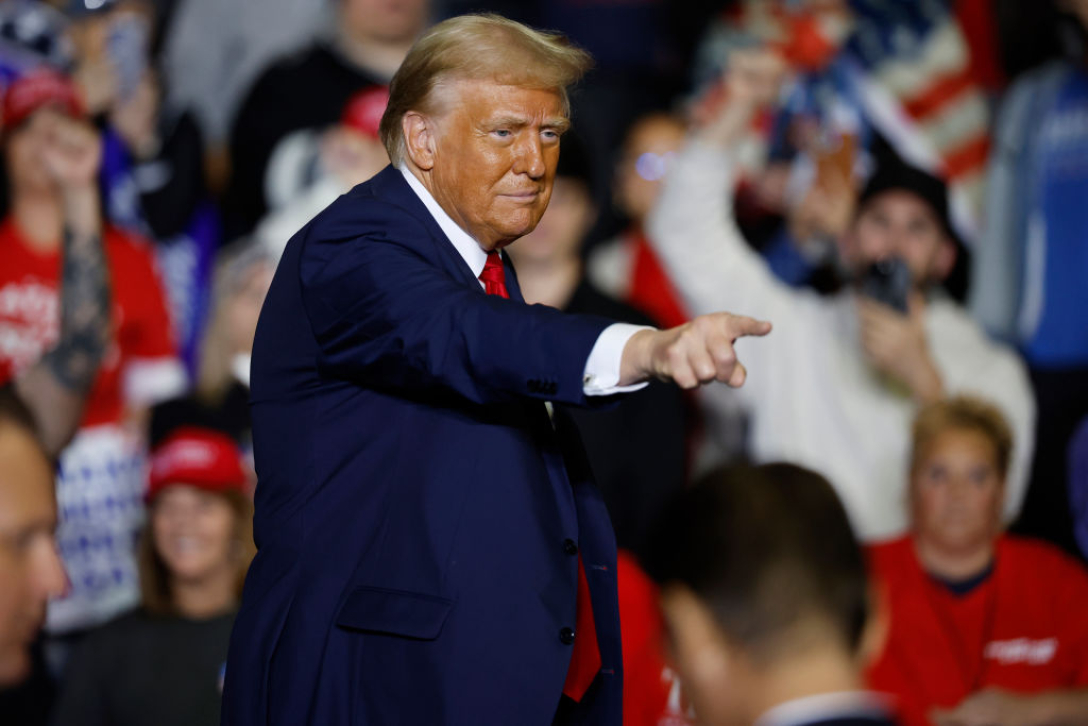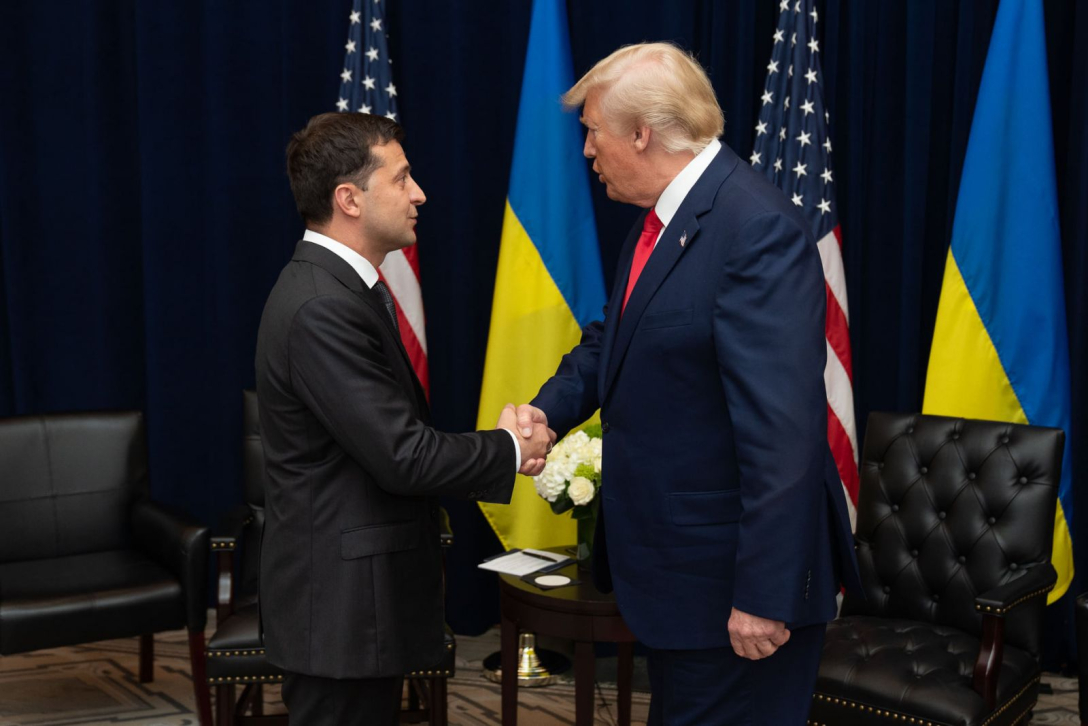"Minsk-3" or the "Korean Scenario": Experts weigh in on Trump's headquarters' new peace initiatives.
According to the Financial Times, Donald Trump may propose a plan to resolve the Russian-Ukrainian war, which would represent a "rethink of the Minsk agreements," should he win the elections on November 5. The publication cites a "longtime advisor" of the former president. The unnamed source claims that the settlement project proposed by the leading Republican will include specific enforcement mechanisms and consequences for violating the agreement, "unlike the failed Minsk agreements." At the same time, he believes that European troops, rather than NATO forces or UN peacekeepers, should guarantee the agreement's implementation. "We won't pay for this. Europe will pay for it," said Trump's advisor.
According to FT, many in the Republican Party now believe that Ukraine is losing the war, and therefore insisting on a settlement is "morally right." Additionally, it is reported that Trump allegedly thinks that NATO membership for Ukraine is not a short-term option, and this issue could be put off for several years to compel Russia to come to the negotiating table.
It is worth noting that the first Minsk agreements were signed in 2014 by representatives of the trilateral contact group (Ukraine, Russia, OSCE) and representatives of the "DPR" and "LPR." A year later, in 2015, the second Minsk agreements were concluded with the involvement of the top political leadership of Germany and France. In February 2024, President Volodymyr Zelensky stated that he does not want to conclude agreements with the Russian Federation similar to the Minsk agreements since Ukraine "does not believe in frozen conflicts."
Why Trump Supports Simple Solutions
Experts believe that if Donald Trump comes to power in the U.S. and insists "on some dubious scenario," it is necessary, first, to "work very closely with him," and second, to "intensify communication with European partners."
"It is clear that a hypothetical 'Minsk-3' would only deepen the existing problems in the Ukraine-Russia-European Union triangle. Therefore, EU member states must now be maximally involved to ensure that 'Minsk-3' or reincarnations of 'Minsk-2' do not occur," emphasizes Alexey Buryachenko.
Highlighting that Trump systematically states his intention to shift the "burden of responsibility" onto the European Union, the expert noted: "In other words, regardless of how the Russian-Ukrainian war ends or continues, the role of the United States in this process will only diminish. That is why I emphasize the critical need to seek additional communication, on one hand, with Trump in the event of his victory, and on the other hand, with the EU."
Speaking about Trump himself, the political scientist noted the following: "I have the impression that Trump, perhaps a very talented businessman of Western descent, despite having served as president of the United States, lacks a fundamental understanding of historical retrospectives and always tries to find simple solutions. One moment he talks about capping oil prices, and the next he's trying to save U.S. funds by minimizing support for Ukraine in its confrontation with Russia."
If Ukraine were to find another simple solution for Trump, where he clearly sees his interests and those of the U.S., then, according to Alexey Buryachenko, the former president and Republican candidate for the U.S. presidency "would change his position without any problems or delays."
What Interests Putin More Than the Recognition of Occupied Territories

Discussing the specific components that Trump’s "peace plan" might include, Volodymyr Fesenko predicts that "with a very high probability" a ceasefire along the front line will be proposed. "I wouldn't call it 'Minsk-3.' Previously, for example, the term 'Korean scenario' was actively used. In short, it can be named anything, like 'Paris-4', 'Oslo-5', and so on, but it is not 'Minsk-3' in the sense that it involved agreements concerning the reintegration of these so-called separatist republics ('LPR' and 'DPR') into Ukraine. That was the essence of the 'Minsk agreements,' whereas a ceasefire is a characteristic of any peace agreement, being its first point and first step. Therefore, the term 'Minsk-3' is incorrect. Moreover, it is a stamp that will discredit any peace agreement," the political scientist notes.
In his view, in the event of Trump coming to power, in addition to a ceasefire along the front line, Ukraine may also be asked to abandon NATO. "This is precisely what Putin wants. Of course, we won't like this, but then we need to demand security guarantees from Trump in the form of a bilateral security agreement with the U.S. Not the kind we have now, but a strengthened one, clearly stating the U.S. agreement to protect us. In other words, if something happens, we should tell the Americans: 'You want us to abandon NATO? Okay, but give us the same security guarantees that you provided to Japan, Israel, and South Korea.' This is one way we should respond to such proposals from Washington," notes Volodymyr Fesenko.
The political scientist also suggests that one of the proposals that might come from the U.S. in the event of a Trump victory will concern demilitarized territories along the border or front line. "This is somewhat similar to what was outlined in the 'Minsk agreements,' but the question is, who will control all this? What Western media writes, that the Europeans should take on the control function — that's one thing, but whether Putin will agree to this is a big question. I highly doubt it. Therefore, it is likely that a peacekeeping contingent under NATO auspices will have to be established to control this. But importantly, if we are talking about demilitarized zones, it should not only apply to Ukraine but also to Russia," predicts the political scientist.
However, overall, he believes that "this is a very risky story for us," because some major cities, such as Kharkiv, Dnipro, Zaporizhzhia, and Kherson will fall under the zone of risk, and it is unclear who will protect them. "So, I think that if there is any demilitarized zone, it should not exceed 50 km, and even then with some exceptions, as there must be certain protection around major cities," the expert notes, adding that this should be a mirrored process and similar steps should be taken by the Russians.
"This also applies to troop reductions, and Putin will definitely demand this. I can even say: Putin is less interested in the recognition of the territories occupied by Russia by Ukraine than in the question of abandoning NATO and reducing the Ukrainian army. However, first of all, we cannot reduce our army to a level below the pre-war state, and secondly, we must firmly demand a similar reduction of Russian armed forces, especially in the border territories with Ukraine," emphasizes Volodymyr Fesenko.

Ultimately, the political scientist predicts that "negotiations on troop reductions will resemble those that took place during the collapse of the USSR, and then in the 1990s." "In other words, we are talking about negotiations on limiting armed forces in Europe. This will also concern Russia and NATO to achieve a certain parity. In that case, it will be necessary to address how many Russian troops can be in Belarus, on the border with Finland, and correspondingly, how many NATO troops can be present in Finland, the Baltic States, and so on. I believe we will reach such negotiations," emphasizes the expert.
However, according to Volodymyr Fesenko, it is extremely important at this point that there are not more Russian troops on our borders than we have — meaning there should be parity. In summary, the political scientist emphasized that if Trump comes to power, "we should not be afraid, make apocalyptic conclusions, but rather recognize that we cannot completely abandon negotiations, as that would simply cut off military assistance, and Ukraine would lose this war." The expert suggests that strategies and tactics for negotiations are already being prepared, particularly modeling Russia's demands and the counter-demands of official Kyiv, as well as developing specific steps for working with American allies. The highest American leadership, the political scientist is convinced, should "consistently and persistently" convince Ukraine that it cannot talk about ending the war solely on Russian terms, as this would also be a defeat for the United States.

In this context, it is worth noting that during the recent "Ukraine — Northern Europe" summit in Reykjavik, Volodymyr Zelensky expressed hope that Trump, if he wins the presidential elections in the U.S., will continue to support Ukraine, as he would not want to lose to Putin. The president assured that Ukraine "understands all the risks," the biggest of which will be a change in U.S. policy, but despite the identity of the future president, he hopes to maintain bipartisan